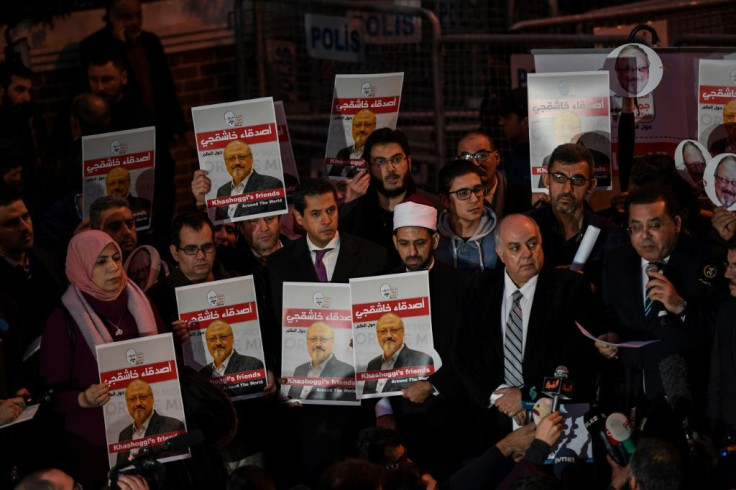Russians, Saudis, Top UK 'Independent' Sanctions List For Rights Violators
Britain on Monday identified 49 "notorious" individuals and organisations, 25 of them Russian and 20 Saudis, to be sanctioned under its first post-Brexit targeting of accused human rights violators.
The Russians are listed for their alleged involvement in the death of lawyer Sergei Magnitsky and the Saudis for suspected roles in the death of the journalist Jamal Khashoggi, the Foreign Office said.
One notable name on the list is Saud al-Qahtani, who it is believed oversaw the team that killed Khashoggi in the Saudi consulate in Turkey in 2018.
Individuals from North Korea were also included on the list and all those named will have their UK assets frozen and travel bans imposed.
It is the first time Britain has gone it alone and used sanctions to penalise individuals and organisations accused of human rights abuse. Previously, it has followed European Union and United Nations sanctions regimes.
The new measures were announced by Foreign Secretary Dominic Raab in a statement to the House of Commons.
He said the government would now have the "power to impose sanctions on those involved in the very worst human rights abuses right around the world.
"These sanctions are a forensic tool, they allow us to target perpetrators without punishing the wider people of a country that may be affected."
He added: "Today this Government and this House sends a very clear message on behalf of the British people that those with blood on their hands, the thugs of despots, the henchman of dictators will not be free to waltz into this country to buy up property on the King's Road, to do their Christmas shopping in Knightsbridge or frankly to siphon dirty money through British banks or other financial institutions."
Those targeted would be those not just committing human rights abuses but anyone who profited from them, Raab said.
Lisa Nandy, the main opposition Labour party's foreign affairs spokeswoman, said the sanctions could not come too soon. Britain had been a "haven" to those who use corruption, torture and murder, she said.

The move follows the passage of the 2018 Sanctions Act to set up a post-Brexit sanctions regime.
Britain formally left the EU earlier this year following the 2016 referendum vote backing the move.
Experts believe the sanctions could help the UK to define its post-Brexit global role.
Emil Dall, a senior research fellow with the RUSI think tank, called the list "UK's first independent sanctions", in a briefing with journalists.
It was likely that Britain would follow US and Canada sanctions more closely than previously when a member of the EU, he said.
The new regime of sanctions would hit London's financial sector, the insurance industry and even UK boarding schools, where some of individuals had sent their children, he said.
Raab paid tribute to Magnitsky who was arrested after detailing an alleged large-scale tax fraud by Russian officials. He died in jail in 2009.
His family watched the announcement from Raab's office.
Khashoggi was a Saudi journalist based in the United States, whose columns were critical of the Saudi regime. He was killed inside the Saudi consulate in Istanbul when he went to an appointment to collect papers he needed for his marriage.
Five people were sentenced to death for his killing in Saudi Arabia last year, but Turkey is currently trying 20 other suspects, including two former aides to Crown Prince Mohammed bin Salman.
© Copyright AFP 2024. All rights reserved.




















